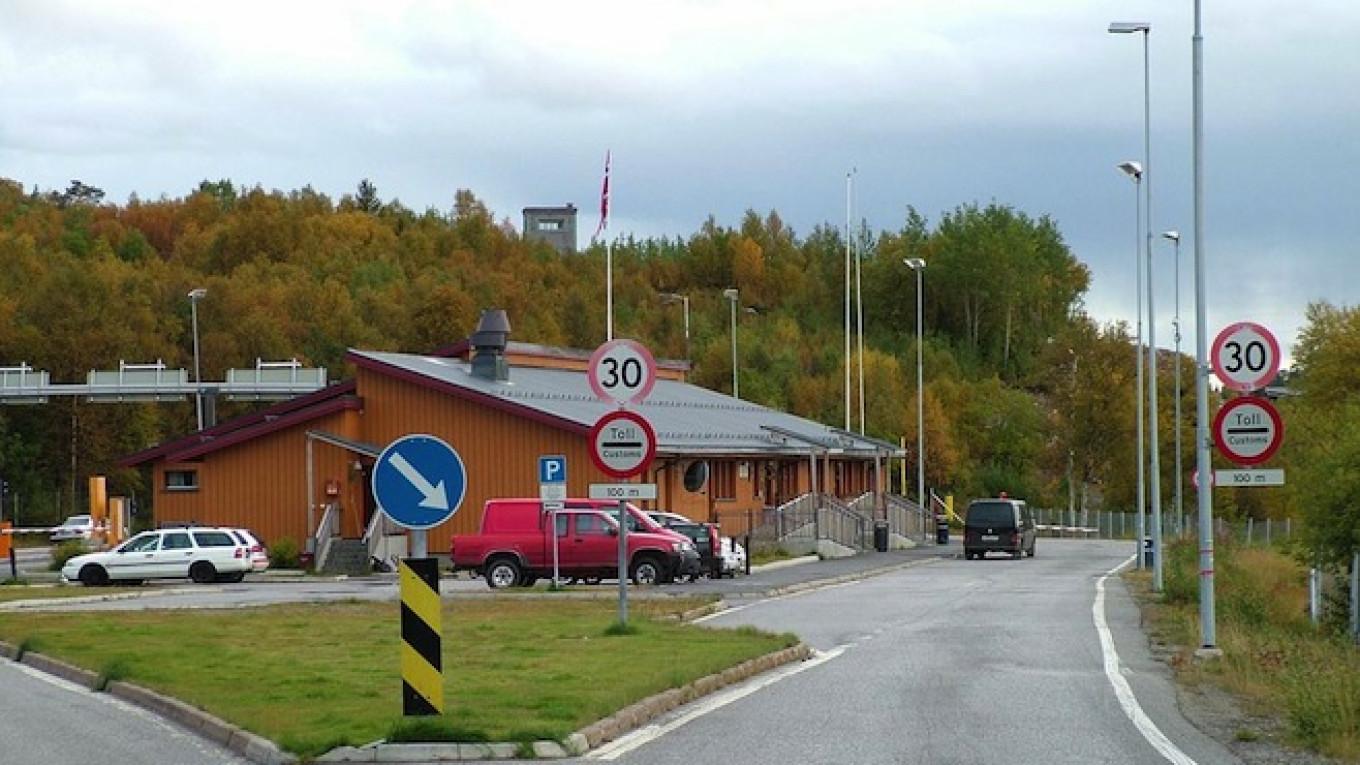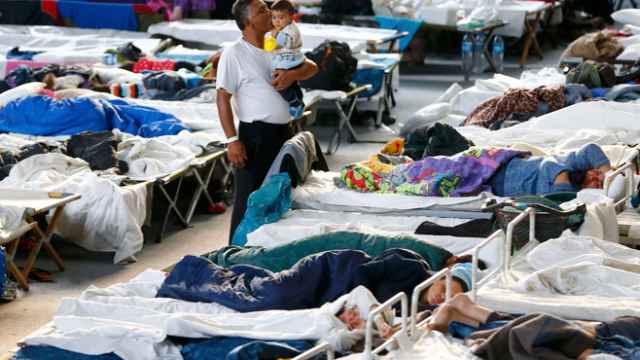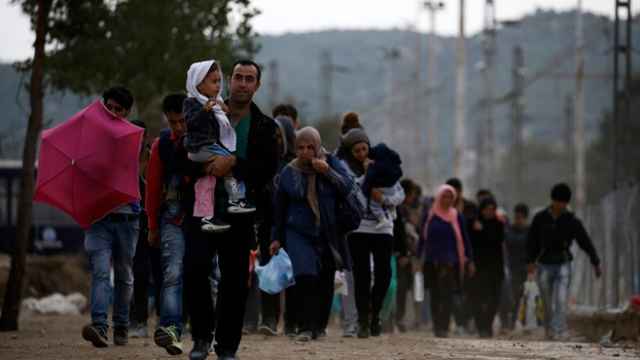OSLO — Russian border guards broke out laughing when Syrian refugee Wassem Khatib wobbled on a child's bicycle toward a remote Arctic frontier post — struggling with a guitar, a backpack and a heavy suitcase — to seek asylum in neighboring Norway.
In a rare light-hearted moment in Europe's worst migration crisis since World War II, Khatib said he had bought the old, rickety bicycle to comply with a Russian law barring travel on foot in the border zone.
"The bicycle didn't work very well. The border guards were laughing," said Khatib, 25, who arrived in Norway last week with his friend, Nabeeh Samaan, 31. They said they had traveled from Beirut via Russia to avoid military service in Syria.
After taking a taxi close to the border, Khatib said he had slung his guitar and backpack on his back and pedaled the last 100 meters to the frontier, pulling his big black suitcase on small wheels. He said he almost fell off.
"My bicycle was bigger and easier to ride," Samaan said, at a refugee center in Oslo.
Police say at least 400 Syrians have reached Norway this year via a long, roundabout route across the Arctic frontier, formerly a Cold War outpost between NATO and the Soviet Union.
"Numbers are rising steadily," Hans Moellebakken, police chief in the Norwegian town of Kirkenes near the border, told Reuters on Friday. In all of 2014, only a dozen refugees crossed the border.
For some, the route seems less risky and cheaper than a trip across the Mediterranean. Refugees have to leave their bicycles at the Norwegian border — Moellebakken estimated there are now about 150 — and are flown to Oslo.
Khatib and Samaan reckoned their trip cost $1,600 each. After getting a visa to visit Russia, they flew from Beirut to Moscow on Sept. 16 and flew the next day to the Russian Arctic port of Murmansk, where they got the taxi.
Russian taxis do not cross the border, partly because Norwegian police have fined drivers carrying refugees 6,000 crowns ($700), accusing them of human trafficking.
The shared taxi cost $500 each for the 220 km (135 miles) from Murmansk — a package deal from the driver, with two second-hand bicycles included in the back of the car.
Asked if he found the price high, Khatib shrugged: "It's high season for Syrian refugees."
A Message from The Moscow Times:
Dear readers,
We are facing unprecedented challenges. Russia's Prosecutor General's Office has designated The Moscow Times as an "undesirable" organization, criminalizing our work and putting our staff at risk of prosecution. This follows our earlier unjust labeling as a "foreign agent."
These actions are direct attempts to silence independent journalism in Russia. The authorities claim our work "discredits the decisions of the Russian leadership." We see things differently: we strive to provide accurate, unbiased reporting on Russia.
We, the journalists of The Moscow Times, refuse to be silenced. But to continue our work, we need your help.
Your support, no matter how small, makes a world of difference. If you can, please support us monthly starting from just $2. It's quick to set up, and every contribution makes a significant impact.
By supporting The Moscow Times, you're defending open, independent journalism in the face of repression. Thank you for standing with us.
Remind me later.






